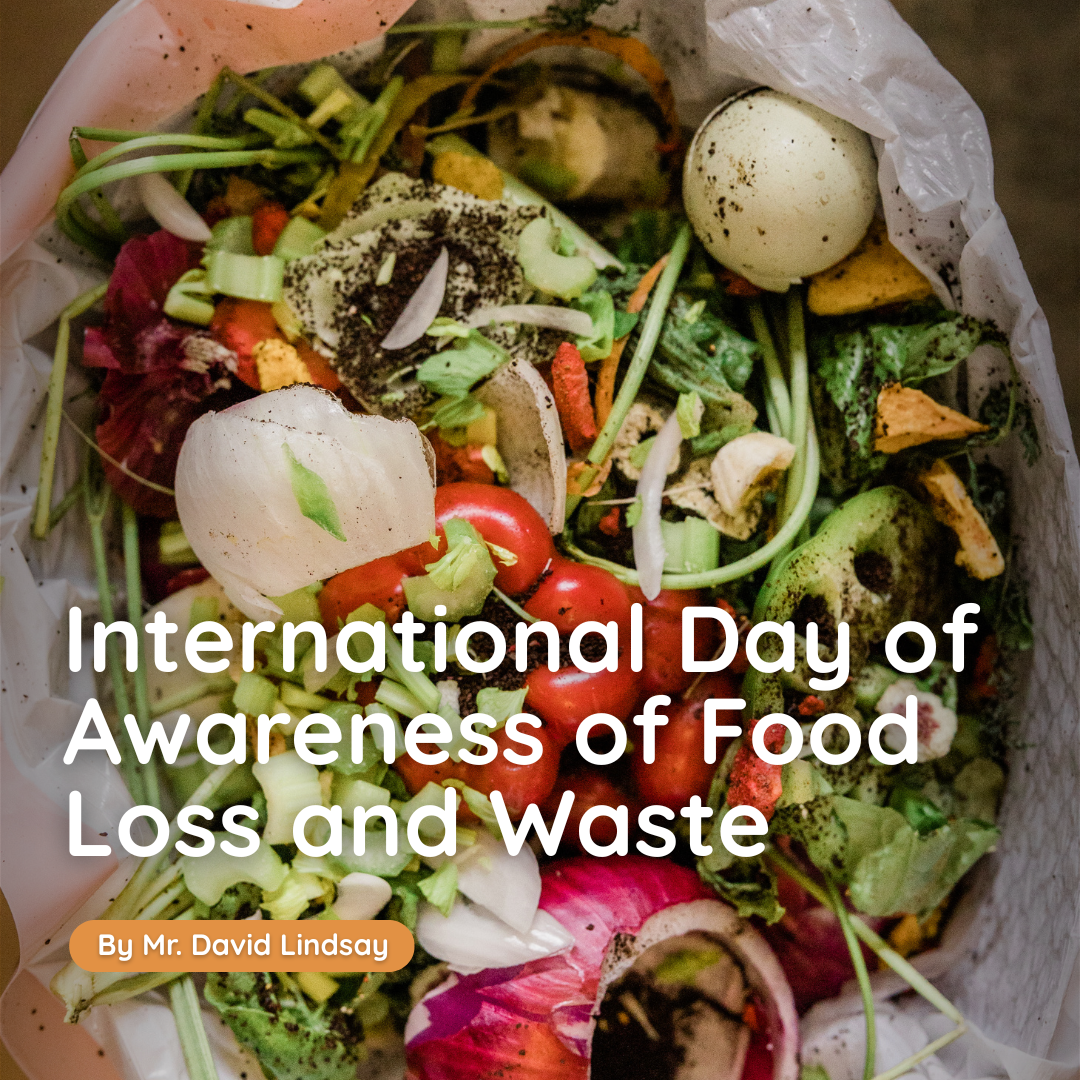International Day of Awareness of Food Loss and Waste by Mr. David Lindsay
It is estimated that approximately 24% of all the food produced is wasted across the entire production chain. This figure is expected to increase in the future due to the environmental challenges, unless active steps are taken to address the problem.

Success in reducing this loss will require a co-ordinated focus on the part of technologists from the production phase through to the retail sector. Effective action will need to be acceptable to the consumers and their influencers, both nationally and multi-nationally, and a major focus will need to be on the safety of any change to the current system of production.
The EU, to meet their Sustainable Development Goals, has set a target of reducing these losses in 2030 by 10% at the process and manufacturing stage and by 30% at the stage of retail and consumption.
The first target will require research on making food crops more resilient to climate change and pest infestation. With increased concerns and restrictions over the use of pesticides, food crop composition will need to be studied to correlate yield against environmental variables in order to select resistant varieties. Effort will need to be focussed on important local crops. Fire hazards will increasingly need to be integrated into the farm planning system.
The loss of food at the retail and home settings would be assisted if there were more sophisticated tools available to detect spoilage through sensors and intelligent packaging. Too many consumers throw away food because it has past its best by date which is frequently assumed to be unsafe.
Research is needed to enable small and medium sized food manufacturers to monitor their processing through the involvement of automatic, cloud-based, control and recording systems for data collection and its application.
The incidence and drivers of food spoilage and loss, especially of fruit and vegetables, needs to be better understood. The biological origin of quality, storability, and food loss and wastage risk is necessary in order to develop effective solutions and , as a result, ensuring less loss in the fresh produce supply chain.
Start date: Monday, 29th September 2025